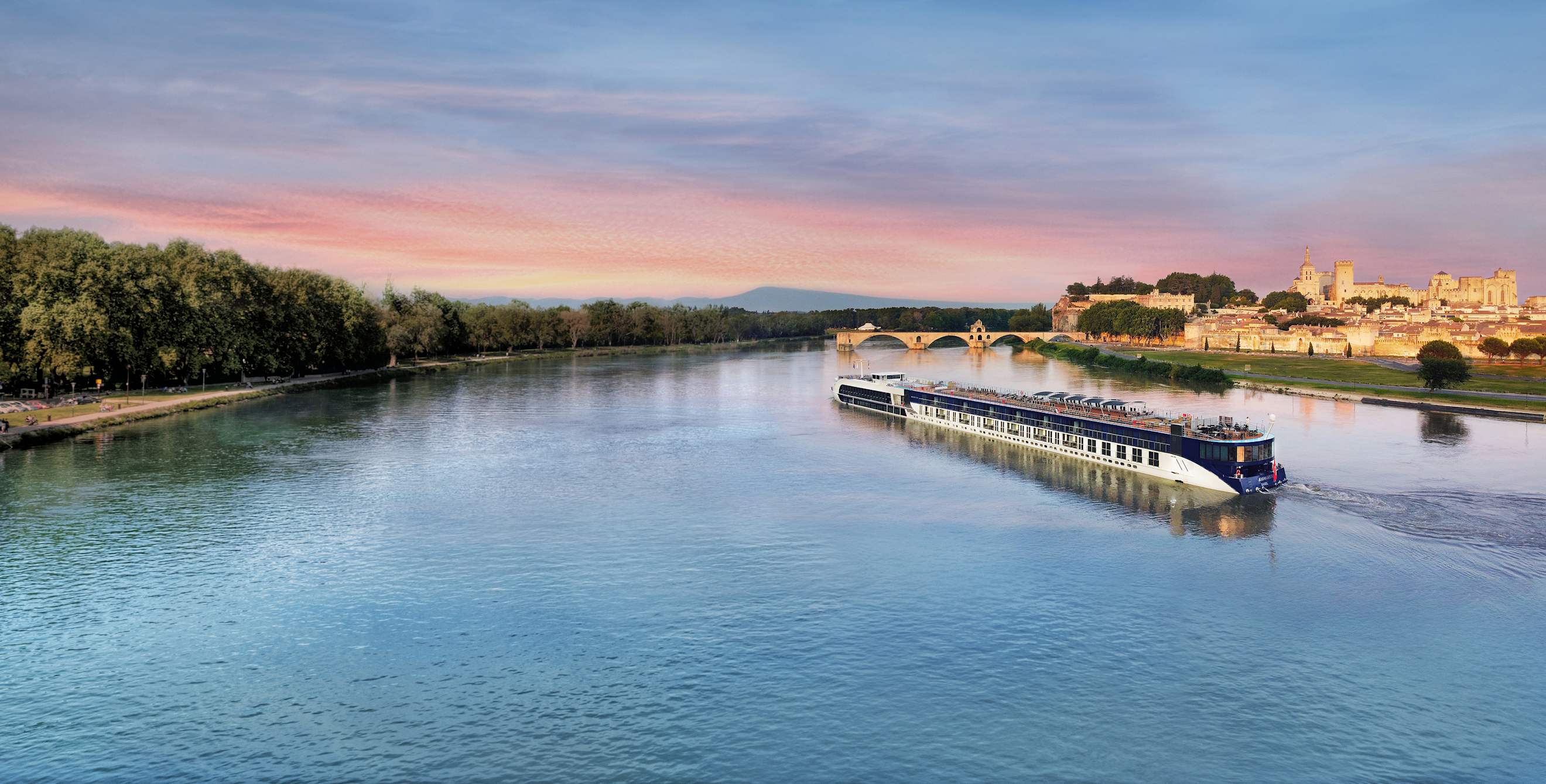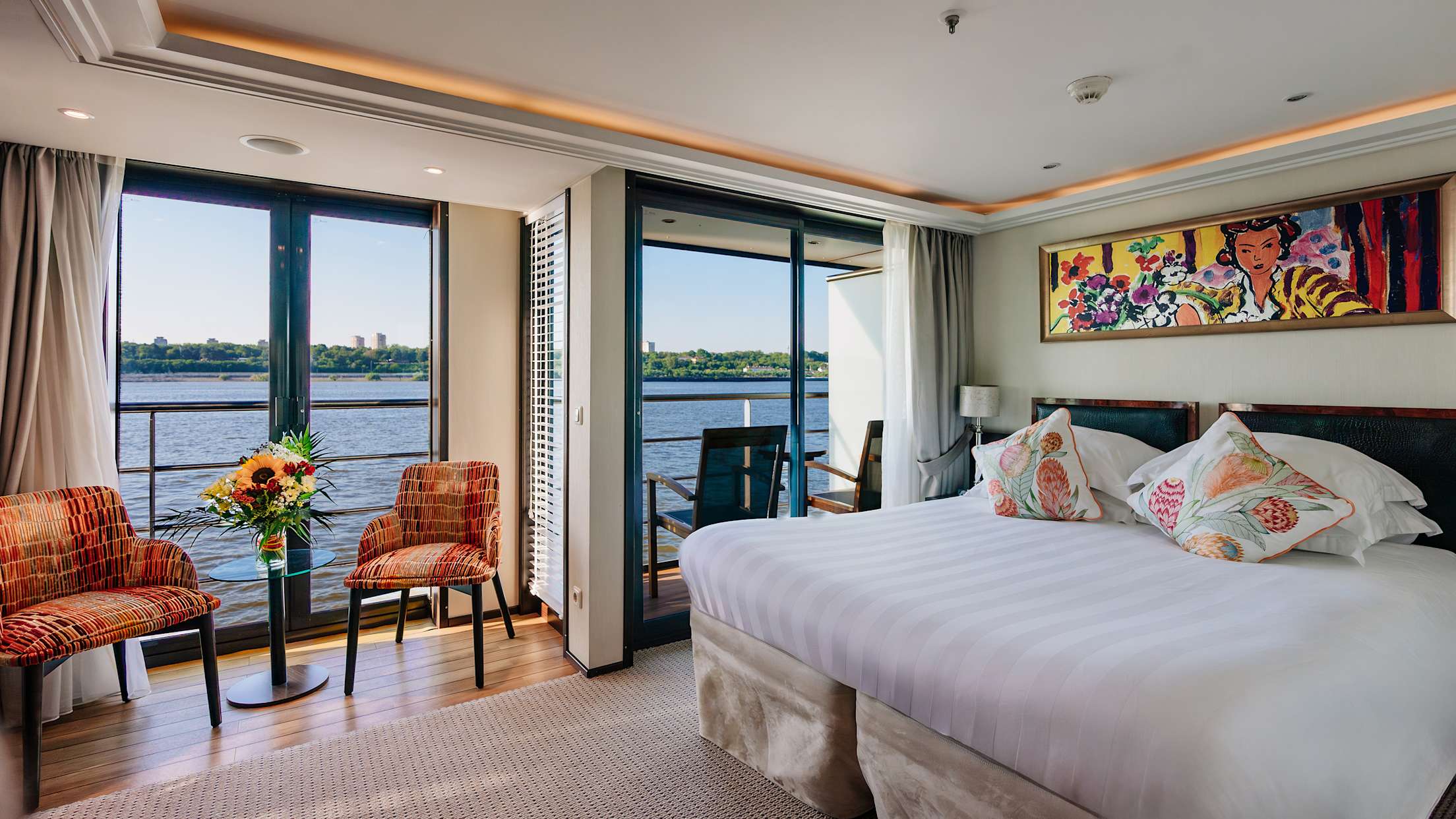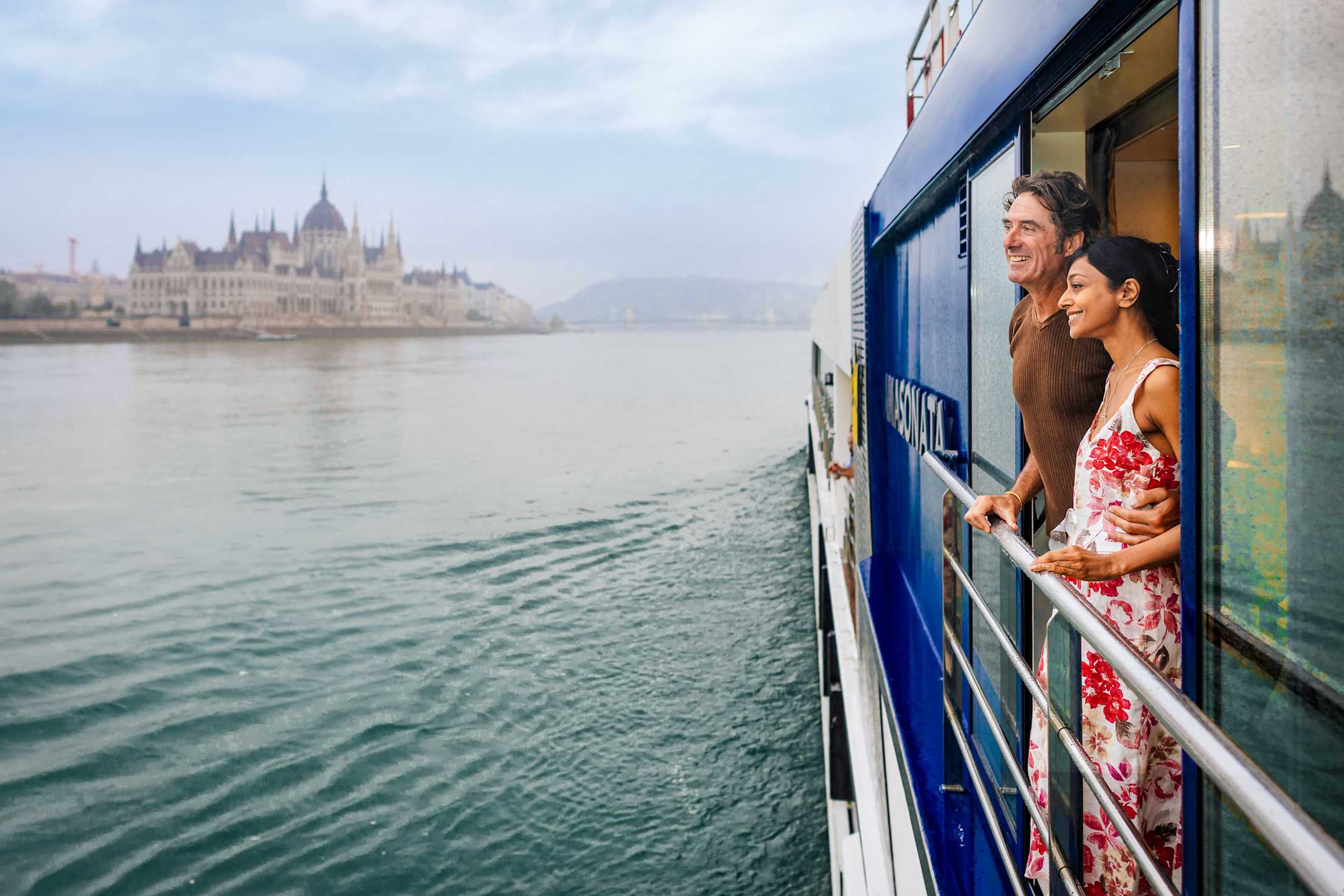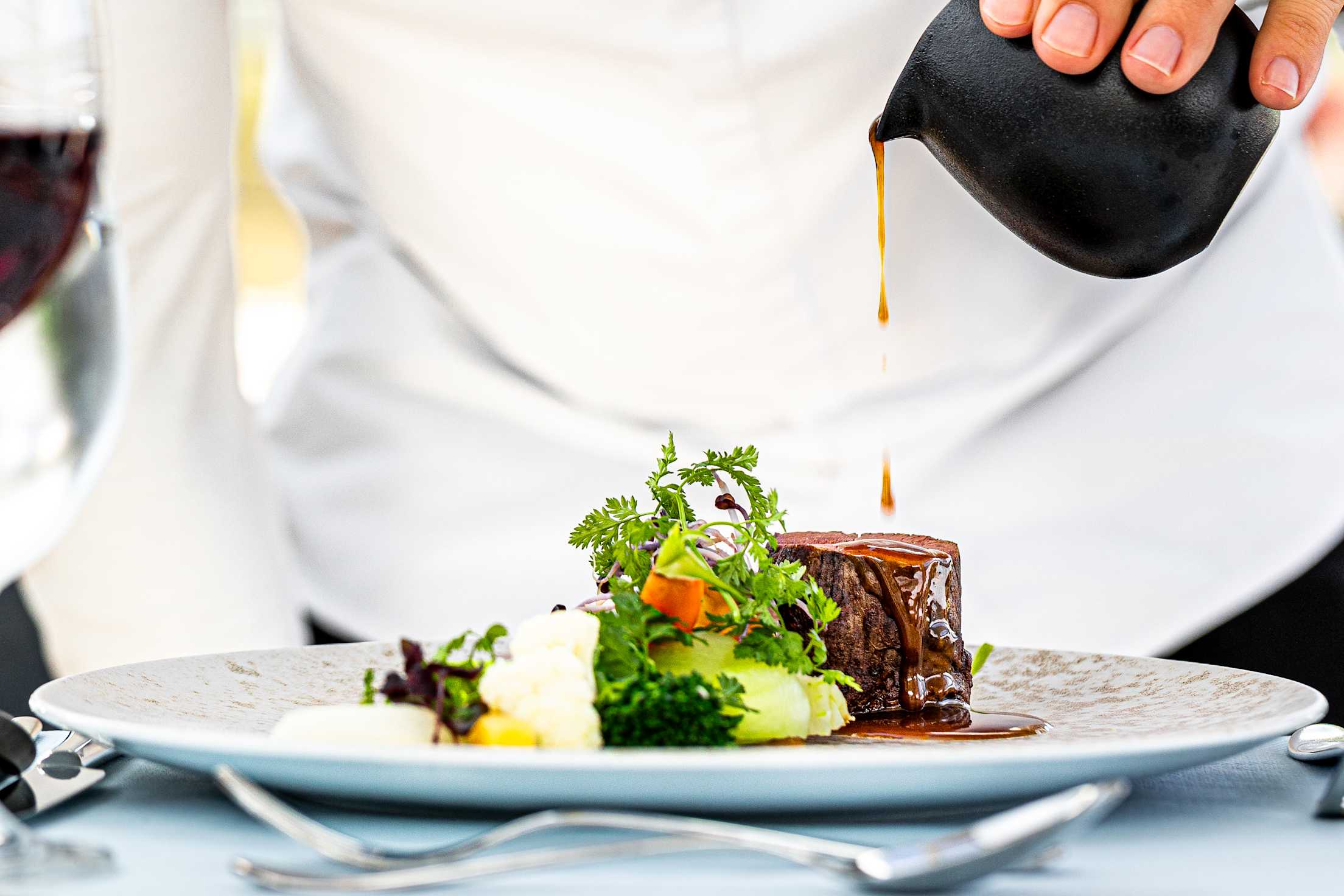
10 Things You Need to Know Before You Book a River Cruise
Is a river cruise right for you?

From cruising past the Eiffel Tower at sunset to exploring Queen Nefertari’s tomb in Egypt before returning to a luxurious dinner on the Nile, a river cruise may have just what you’re looking for. Here’s everything you need to know before you book.
1. Not all river cruises are exactly alike.
You'll need to do your research to ensure you pick the river cruise line that’s right for you. Like hotels, the personality and experience of a river cruise can vary widely depending on the price point and intended audience. Whether you’re looking for casual or formal, educational or more focused on play, there’s a right cruise for everyone. Some focus on serving up destinations in as easy-for-the-traveler way as possible; others do a better job of offering active options like intense bike rides or scenic hikes.
2. The size of the river determines the size of the ship.
Cabins and shared spaces may be smaller than you expect, especially if you’re used to spreading out on some of the largest cruise ships. River-going cruise vessels are narrow for good reason—in some parts of the world, they wouldn't fit down the river if they were bigger. In some regions the locks, which help the vessels move from elevation to elevation, may only be accessible to ships of a certain width or length. The height of bridges can also limit how tall a ship can be. For example, ships that travel on the Danube River cannot have an elevator to the sun deck (the top outdoor deck) because the elevator would be too tall to clear some of the bridges. If a slightly larger ship is important to you, look for itineraries that stick to bigger, more accommodating rivers and ports.

3. Cabins may be tight.
Because some river ships must be narrow to cruise on the specific waterways they serve—including those that ply the Douro in Portugal and Spain, the Seine in France, and the Elbe in Germany—you should look closely at pictures of cabins, as well as their square footage. Narrow showers and limited storage space may be issues for some people, so make sure you know what you’re booking and whether it will work for you before putting down your money.
4. Gyms can be small or nonexistent.
With little space to work with, river cruise lines don’t have the option of including the sprawling spas and fitness facilities that large ships are known for these days. Instead, many river cruise ships don’t have a fitness center, or it may be as simple as a couple machines in a small room. If maintaining your fitness regimen is a priority for you, be sure to read the details of what’s onboard carefully, and look for itineraries that offer walking-tour excursions or ships that travel with fleets of bikes or kayaks to get you moving.
5. You’re traveling with a community.
With fewer than 200 passengers on most river cruises and fewer than 100 on plenty of them, you’ll get to know other passengers quickly. If you make fast friends, this can be a wonderful opportunity to connect and forge lasting relationships with fellow travelers. But, it can be challenging to get privacy and time alone with your travel companions outside of your cabin. With fewer onboard amenities than ocean-going ships and excursions with your fellow passengers as the main entertainment, river cruises are inherently more social than larger ones.

6. There are family-friendly and adults-only ships.
While ocean-going cruises often cater to families with little ones, tweens, and teens, river cruises generally market to empty nesters and retirees. The pace is slower, there are fewer activities and programs to entertain kids, and there tend not to be kids meals. That said, some river lines do invite children onboard, although many have age restrictions. During school breaks, ships without children on most sailings during the year can see a substantial uptick. Whether you’re considering traveling with your kids or grandkids, or you would prefer an adults-only experience, you’ll want to do your homework and check the line’s policy.
7. Being onboard with a large group can make you feel excluded.
Booking a “partial buyout” on a river cruise is common on some lines, with a private group taking up a large chunk of the cabins on a sailing. If you want to avoid sharing your trip with a larger group, reach out to the line to see if any have booked your sailing before you sign up.
8. Wi-Fi can be spotty.
The strength of Wi-Fi varies widely from river cruise line to river cruise line. Some may have Wi-Fi fast enough to stream videos while others may have such a spotty connection that it can be difficult to send a text. If having access to your texts, emails, social media channels, and streaming platforms is essential, see where the cruise line you’re considering booking falls on the spectrum by reaching out to ask about internet speed and reading reviews on sites like Cruise Critic and Tripadvisor.

9. River cruise kitchens can usually handle dietary restrictions—if you tell them in advance.
Whether you’re gluten-free or you have a food allergy, there’s a good chance you can get snacks and meals tailored to your needs. However, if you don’t inform the line of your restrictioms when booking, they can’t plan ahead and may not have these items available. If you have allergies or strict preferences, be sure to reach out before you book to ensure they can handle your requests.
10. Water levels may cause last-minute changes to the itinerary.
Just as ocean cruises are susceptible to weather, so are river cruises. Low water levels can trigger changes in docking locations, shore excursion substitutions, and delays on every river from the Mississippi to the Rhine. In other cases, passengers may be transferred to identical vessels for later parts of their cruises. Of course, these outcomes are better than a canceled cruise, but they’re also less jarring if you know they’re a possibility. While low water levels are most likely in late summer, you can confidently book the cruise that’s best for your schedule even if it falls in this time; your cruise line will have a plan to make the most of your trip.
AAA Travel Advisors can help you plan your next cruise, including helping you find the right cruise line that matches your travel style, shore excursions, and more.